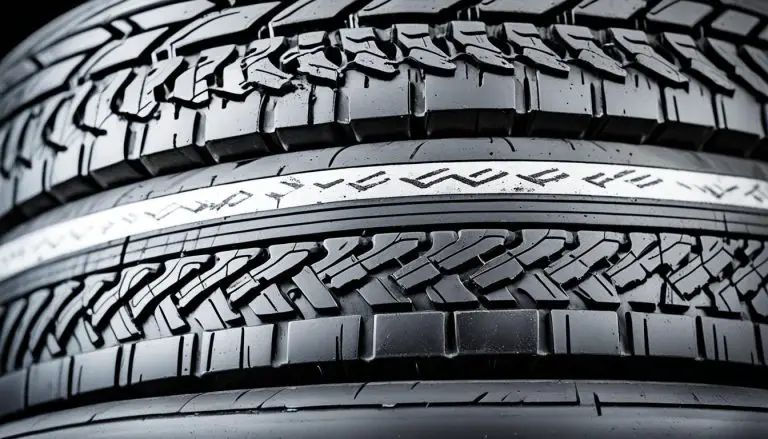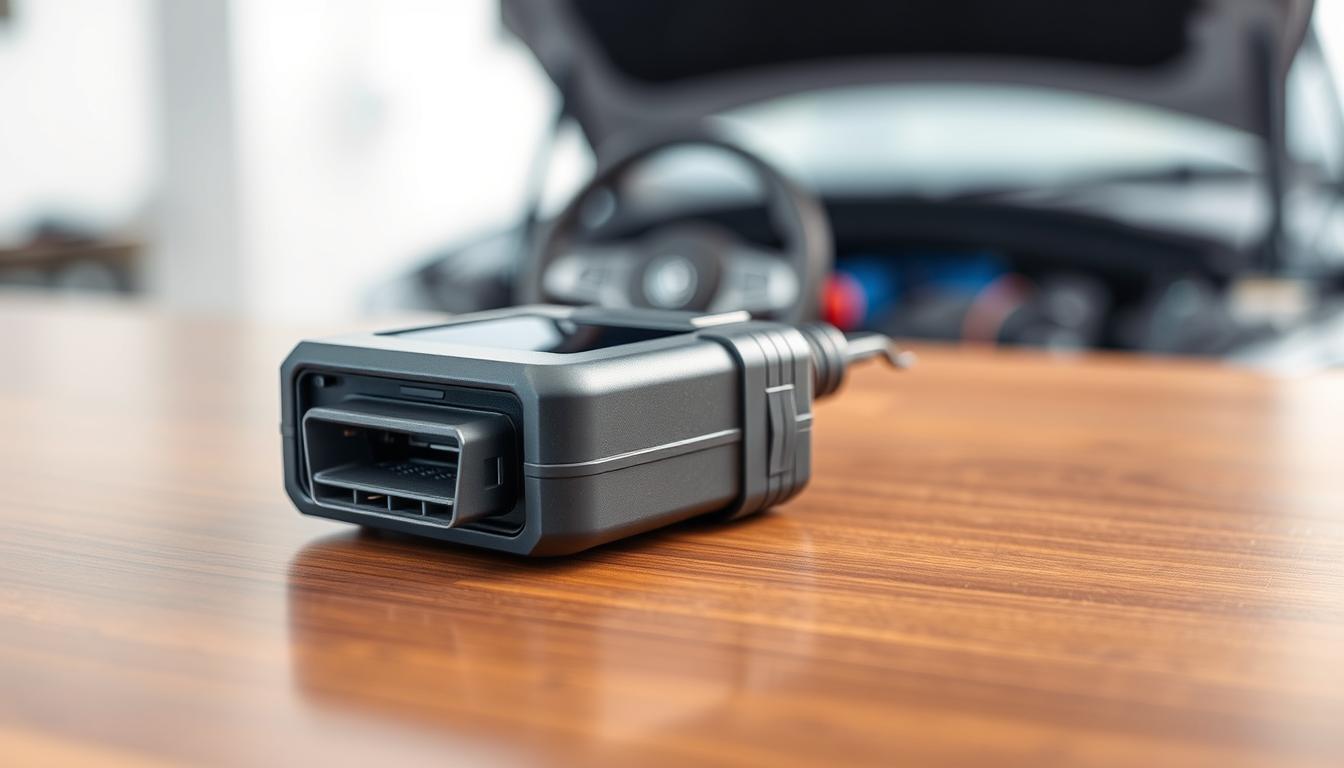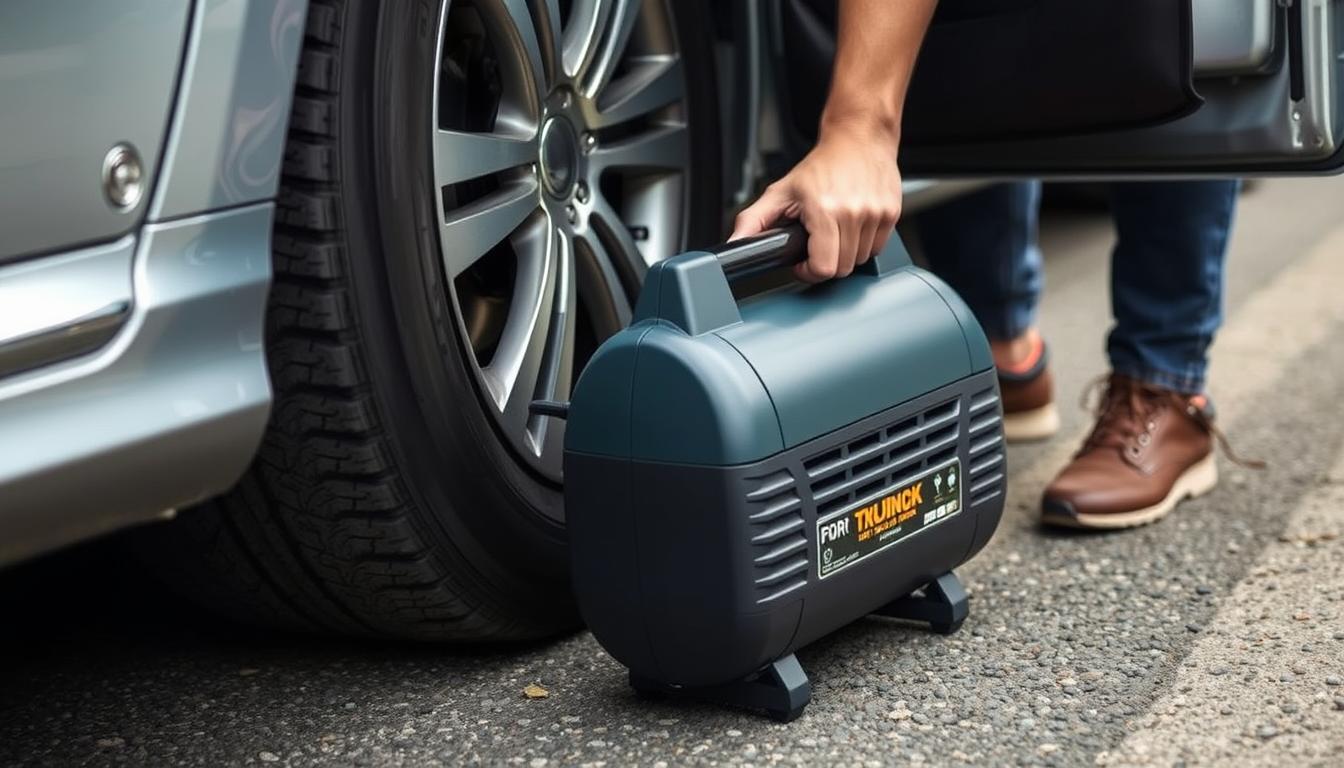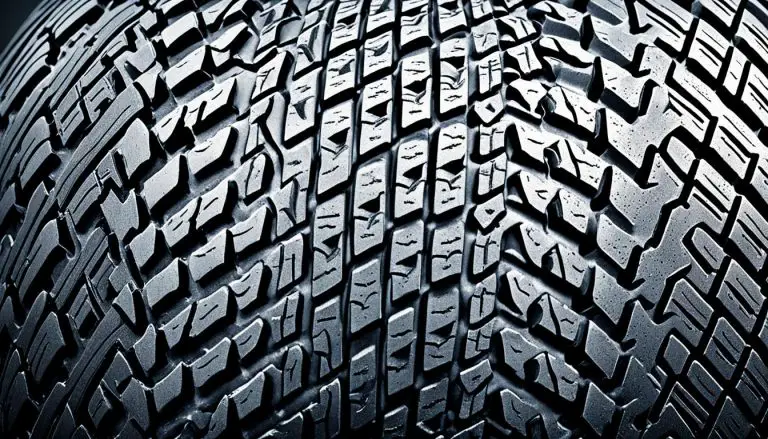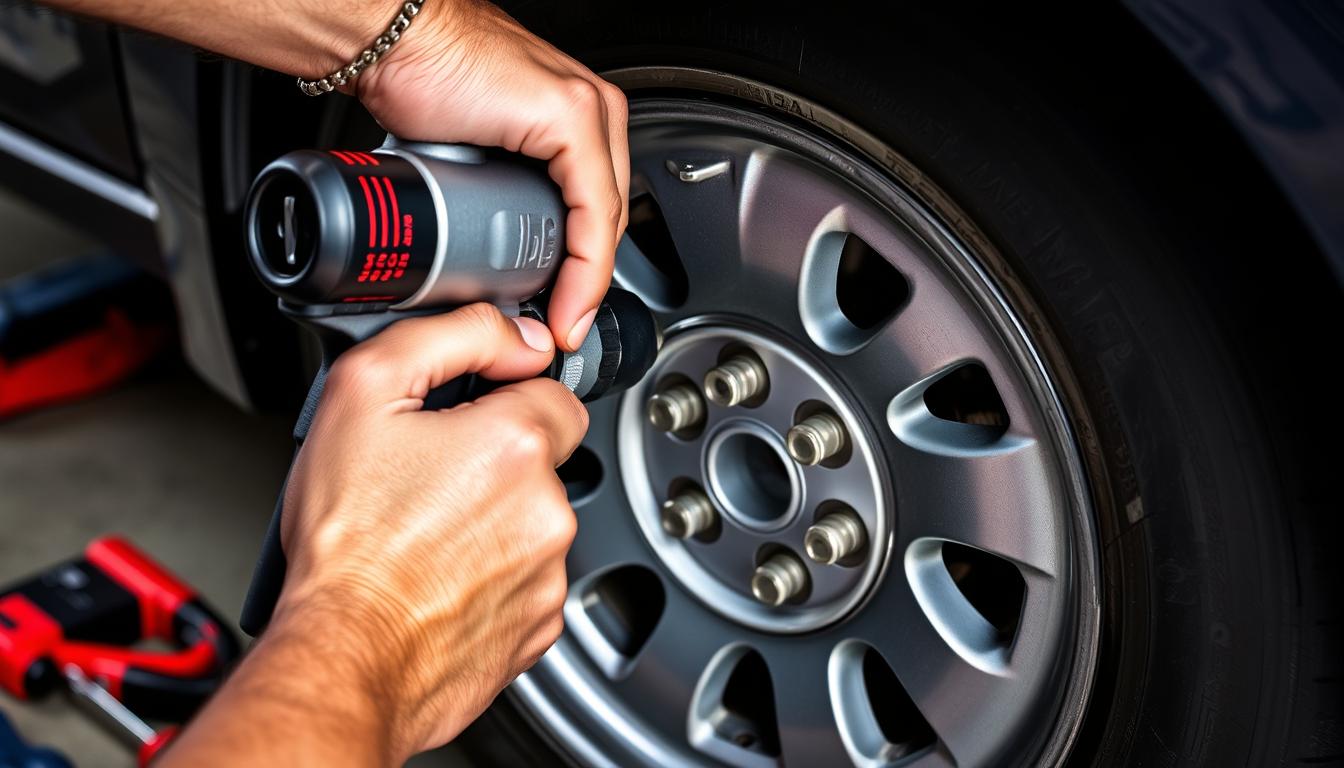
We’ve all been there—kneeling beside a car with a flat tire, struggling against stubborn lug nuts that refuse to budge. According to automotive maintenance statistics, nearly 40 million drivers encounter flat tires annually in the US alone, and many face the frustrating challenge of overtightened lug nuts. An impact wrench can transform this experience from an exhausting ordeal into a quick, effortless task. Whether you’re a weekend DIYer or a serious automotive enthusiast, the right impact wrench for lug nuts can save you time, protect your wheel components, and eliminate the physical strain of manual tire changes.
Why Choose an Impact Wrench for Lug Nuts?
When it comes to handling stubborn lug nuts, impact wrenches offer significant advantages over traditional manual methods. These powerful tools deliver high torque through rapid rotational hammering action, making them exceptionally effective at breaking loose even the most overtightened fasteners.
Manual vs. Impact Wrenches
Traditional lug wrenches require significant physical effort and leverage. Even with a breaker bar, you risk applying uneven force that can damage threads or break studs. Impact wrenches, by contrast, deliver controlled bursts of rotational force that effectively loosen nuts without straining your body or risking component damage.
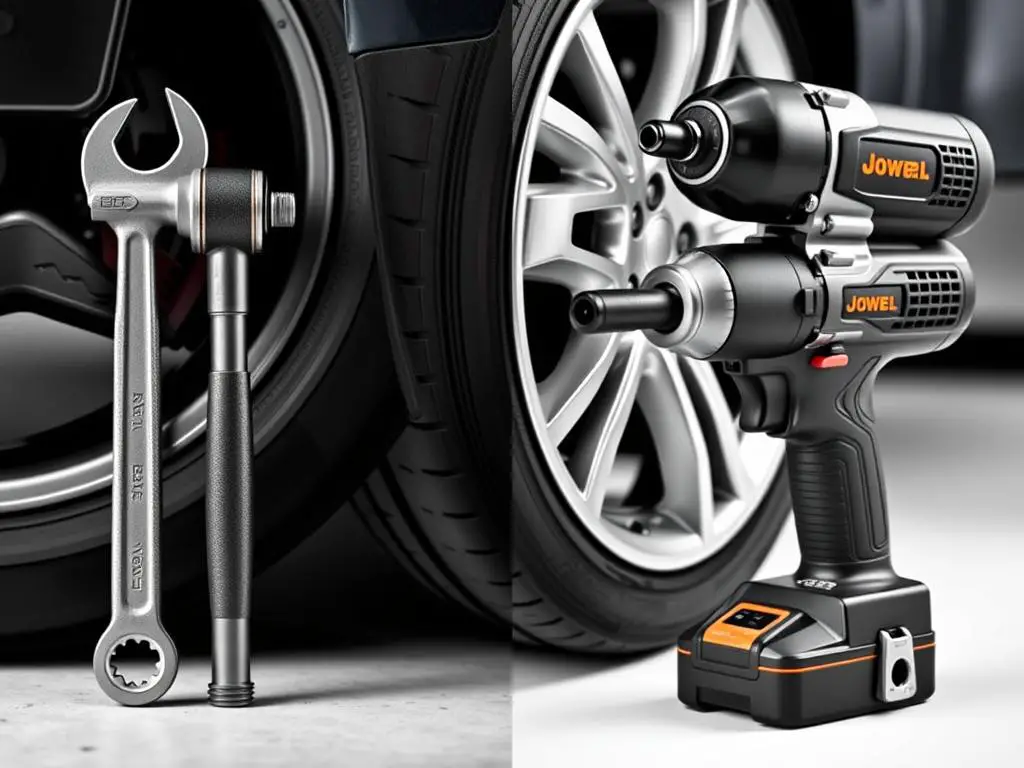
Key Applications
- Regular tire rotations (recommended every 5,000-8,000 miles)
- Emergency roadside tire changes
- Seasonal tire swaps
- Brake service and wheel-related repairs
- Removing seized or overtightened lug nuts
- Professional automotive maintenance
Safety Tip: While impact wrenches excel at loosening lug nuts, final tightening should always be done with a calibrated torque wrench to ensure proper torque specifications are met.
Advantages of Impact Wrenches
- Significantly reduces physical effort required
- Makes quick work of stubborn or rusted lug nuts
- Delivers consistent force through hammering action
- Reduces risk of stripped threads compared to manual methods
- Saves substantial time during tire changes
Limitations to Consider
- Can overtighten lug nuts if not used properly
- Requires power source (battery, air compressor, or electricity)
- Higher initial investment than manual tools
- Not suitable for final tightening (torque wrench needed)
- Can be noisy, especially pneumatic models
Electric vs Pneumatic (Air) vs Cordless Options
Impact wrenches come in three main power variants, each with distinct advantages for different use cases. Understanding these differences is crucial when selecting the right impact wrench for lug nuts.
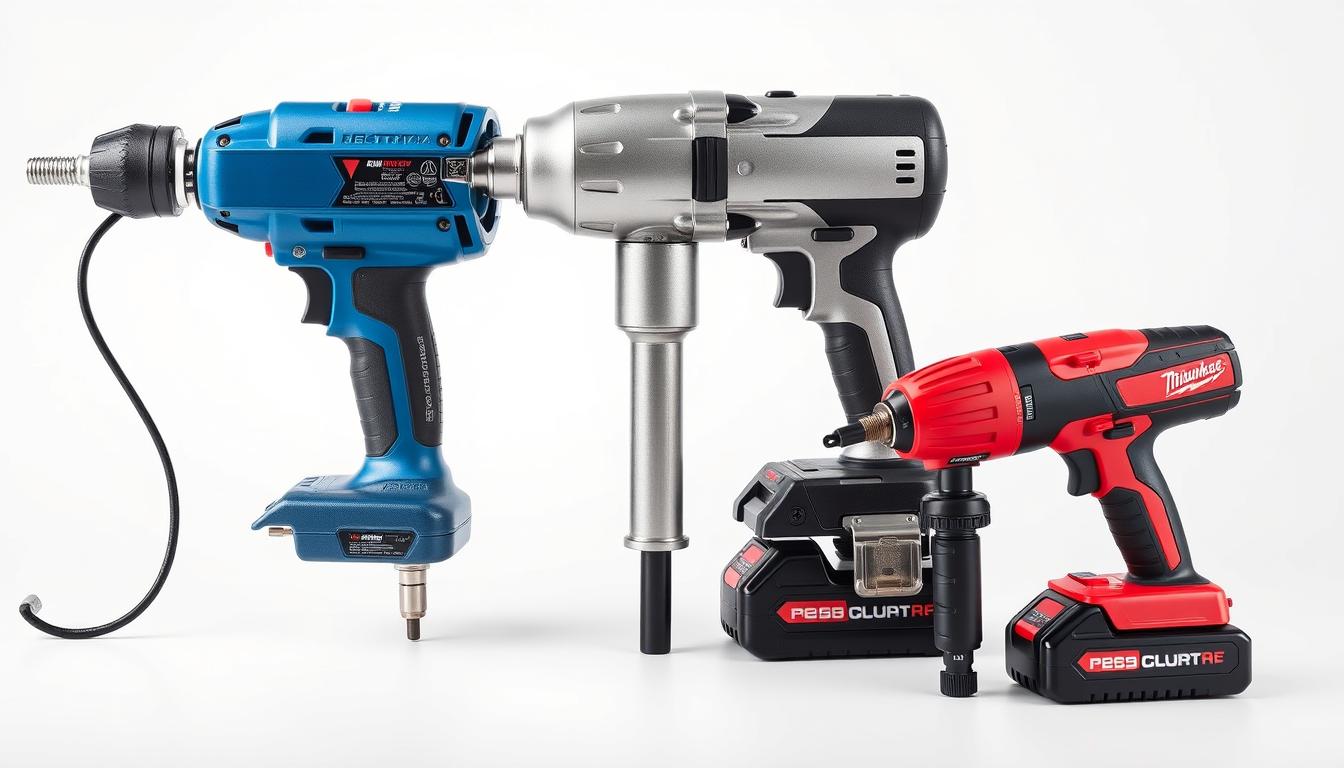
| Type | Power Source | Typical Torque | Portability | Best For | Popular Brands |
| Cordless | Battery (18-20V) | 250-1200 ft-lbs | Excellent | DIY, roadside emergencies, mobile mechanics | DeWalt, Milwaukee, Makita |
| Electric (Corded) | Wall outlet | 200-350 ft-lbs | Limited by cord | Home garage, consistent use | Porter-Cable, CRAFTSMAN, ACDelco |
| Pneumatic (Air) | Air compressor | 300-1200+ ft-lbs | Limited by air hose | Professional shops, heavy-duty applications | Ingersoll Rand, AIRCAT, Chicago Pneumatic |
Cordless Impact Wrenches
Battery-powered impact wrenches have seen tremendous improvements in recent years, with modern lithium-ion batteries providing impressive power and runtime. These tools offer the ultimate convenience for DIYers and mobile mechanics.
Advantages:
- Complete portability for roadside emergencies
- No cords or hoses to manage
- Modern models offer impressive torque output
- Quieter operation than pneumatic models
Limitations:
- Battery life limitations for extended use
- Higher price point for quality models
- May not match the maximum torque of air models
- Batteries require recharging and eventual replacement
Pneumatic (Air) Impact Wrenches
Air-powered impact wrenches remain the standard in professional automotive shops due to their reliability, power, and longevity. These tools convert compressed air into rotational force through an internal hammer mechanism.
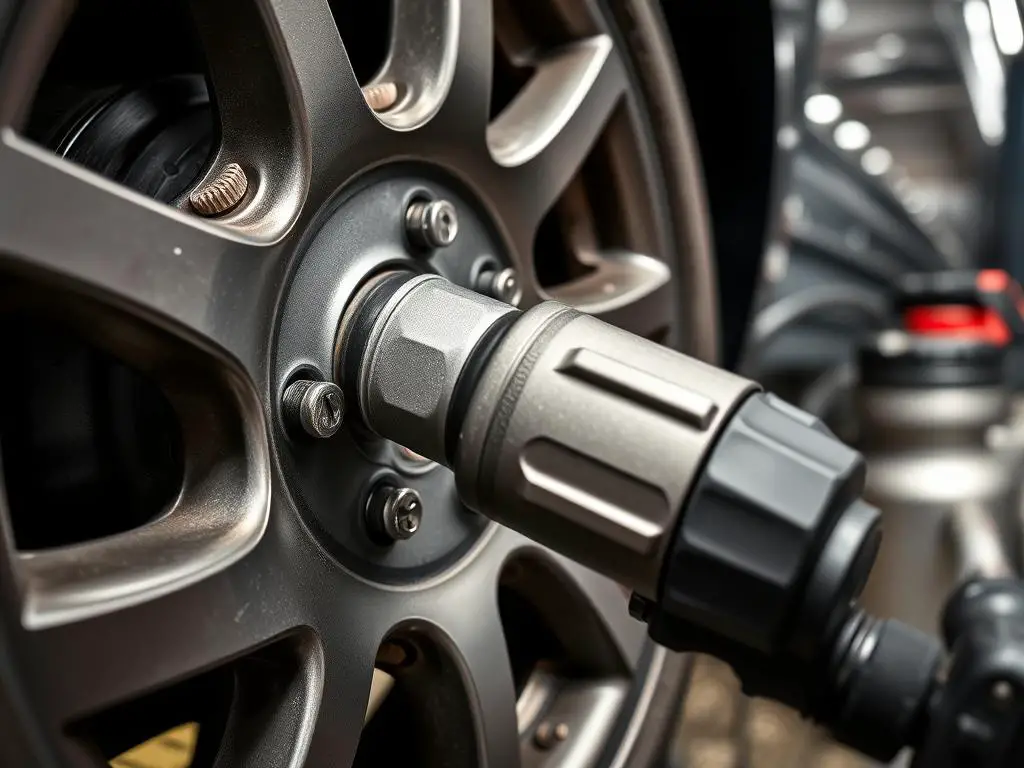
Advantages:
- Exceptional power-to-weight ratio
- Virtually unlimited runtime (with compressor)
- Lower tool cost compared to equivalent cordless models
- Excellent durability and longevity
Limitations:
- Requires air compressor and hose setup
- Limited mobility due to air hose
- Louder operation
- Total system cost includes compressor
Electric (Corded) Impact Wrenches
Corded electric impact wrenches offer a middle ground between pneumatic power and cordless convenience. They provide consistent performance without battery limitations but require proximity to a power outlet.
Advantages:
- Consistent power without battery drain
- Generally more affordable than cordless models
- No compressor needed
- Lighter than many cordless options
Limitations:
- Limited by cord length and outlet availability
- Typically less powerful than air models
- Cord management can be cumbersome
- Not suitable for roadside emergencies
Top-Rated Impact Wrenches for Cars & SUVs
After extensive testing and research, we’ve identified the most effective impact wrenches for automotive lug nuts across various categories. The 1/2-inch drive size is the industry standard for most passenger vehicles, offering the ideal balance of power and versatility.
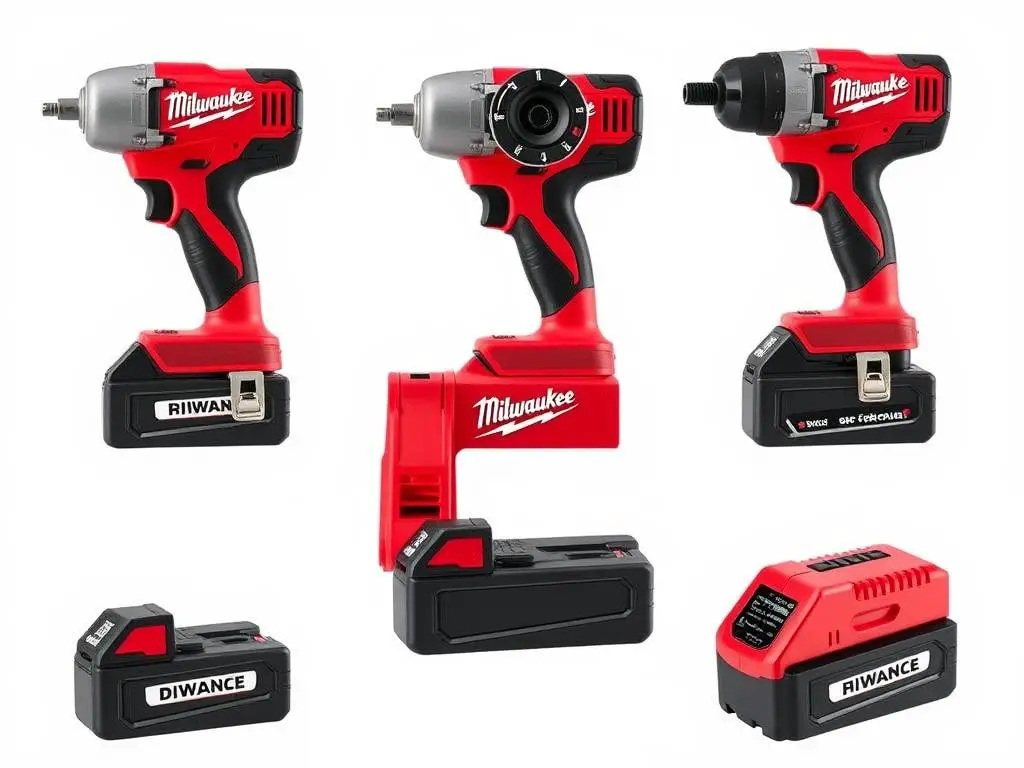
Best Overall: Milwaukee 2767-20 M18 FUEL High Torque
The Milwaukee 2767-20 sets the standard for cordless impact wrenches with an impressive 1,000 ft-lbs of breakaway torque and 700 ft-lbs of fastening torque. This 1/2-inch impact wrench makes quick work of even the most stubborn lug nuts on trucks and SUVs.
- Drive Size: 1/2-inch
- Max Torque: 1,000 ft-lbs (breakaway), 700 ft-lbs (fastening)
- Weight: 5.9 lbs (tool only)
- Battery: 18V (sold separately)
- Features: 4-mode drive control with bolt removal mode, friction ring for quick socket changes
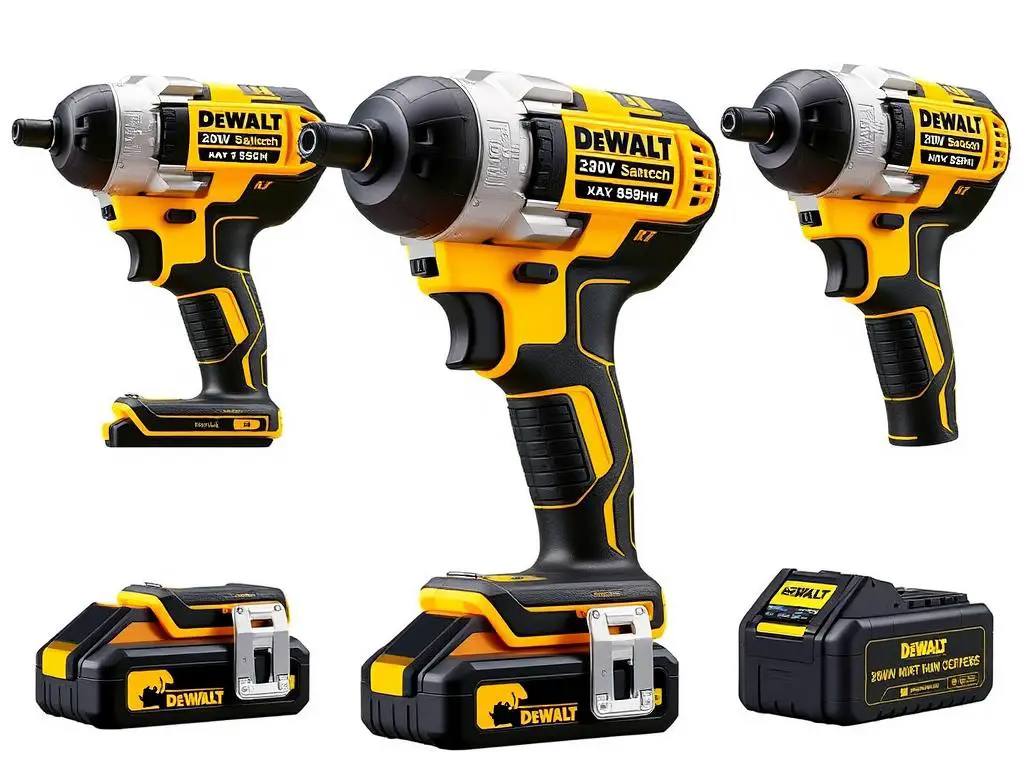
Best Value: DEWALT 20V MAX XR DCF899HB
The DEWALT DCF899HB delivers exceptional performance at a competitive price point. With 700 ft-lbs of maximum torque and a brushless motor for efficiency, this impact wrench is perfect for automotive enthusiasts who need reliable power for lug nuts.
- Drive Size: 1/2-inch
- Max Torque: 700 ft-lbs (breakaway), 400 ft-lbs (fastening)
- Weight: 5.8 lbs (tool only)
- Battery: 20V (sold separately)
- Features: 3-speed selector, brushless motor, hog ring anvil
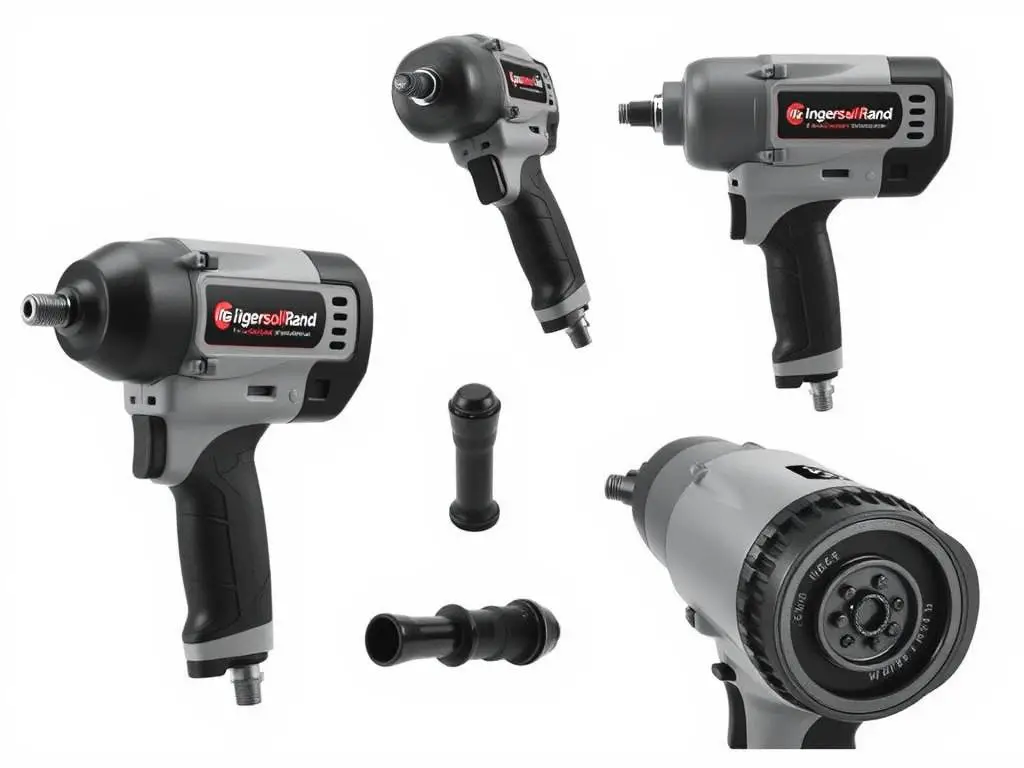
Best Pneumatic: Ingersoll Rand 2235TiMAX
The Ingersoll Rand 2235TiMAX is a workshop legend, delivering 1,350 ft-lbs of nut-busting torque in a surprisingly compact package. This pneumatic impact wrench is the go-to choice for professional mechanics tackling stubborn lug nuts.
- Drive Size: 1/2-inch
- Max Torque: 1,350 ft-lbs (breakaway), 930 ft-lbs (working)
- Weight: 4.6 lbs
- Air Consumption: 6 CFM @ 90 PSI
- Features: Twin-hammer mechanism, 4-position power regulator, titanium housing
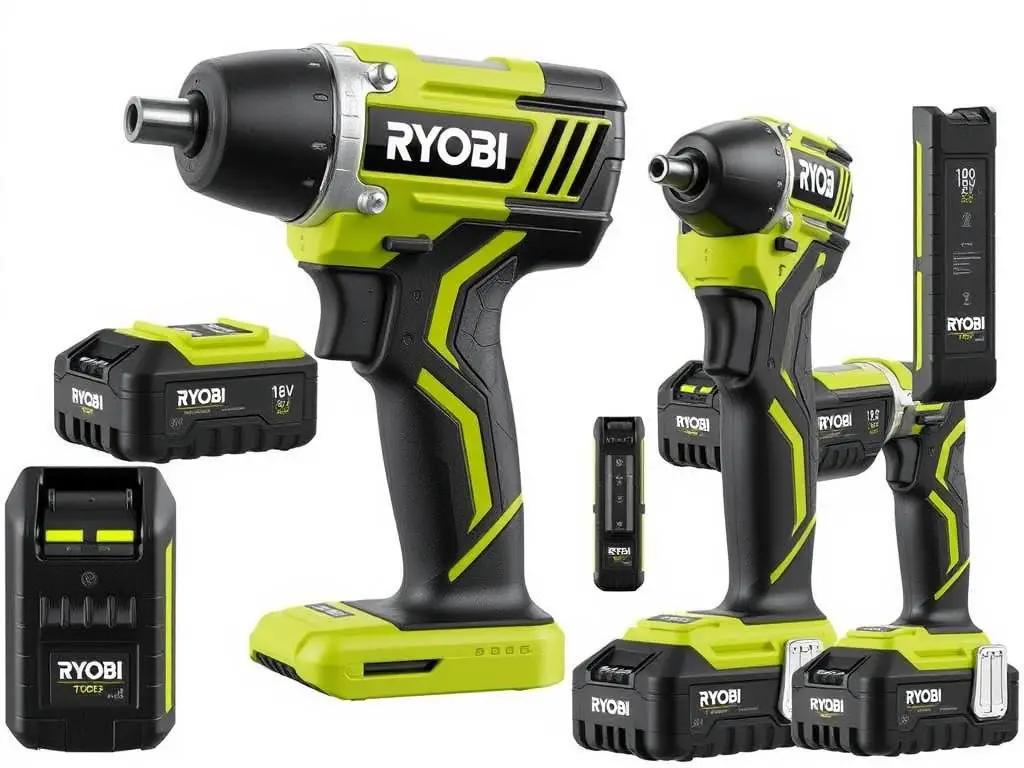
Best Budget: Ryobi P261 18V ONE+
The Ryobi P261 offers impressive performance at an entry-level price point. With 300 ft-lbs of torque, it’s powerful enough for most passenger vehicle lug nuts while being accessible to DIYers on a budget.
- Drive Size: 1/2-inch
- Max Torque: 300 ft-lbs
- Weight: 3.5 lbs (tool only)
- Battery: 18V (sold separately)
- Features: 3-speed selector, tri-LED lights, compatible with all Ryobi ONE+ batteries
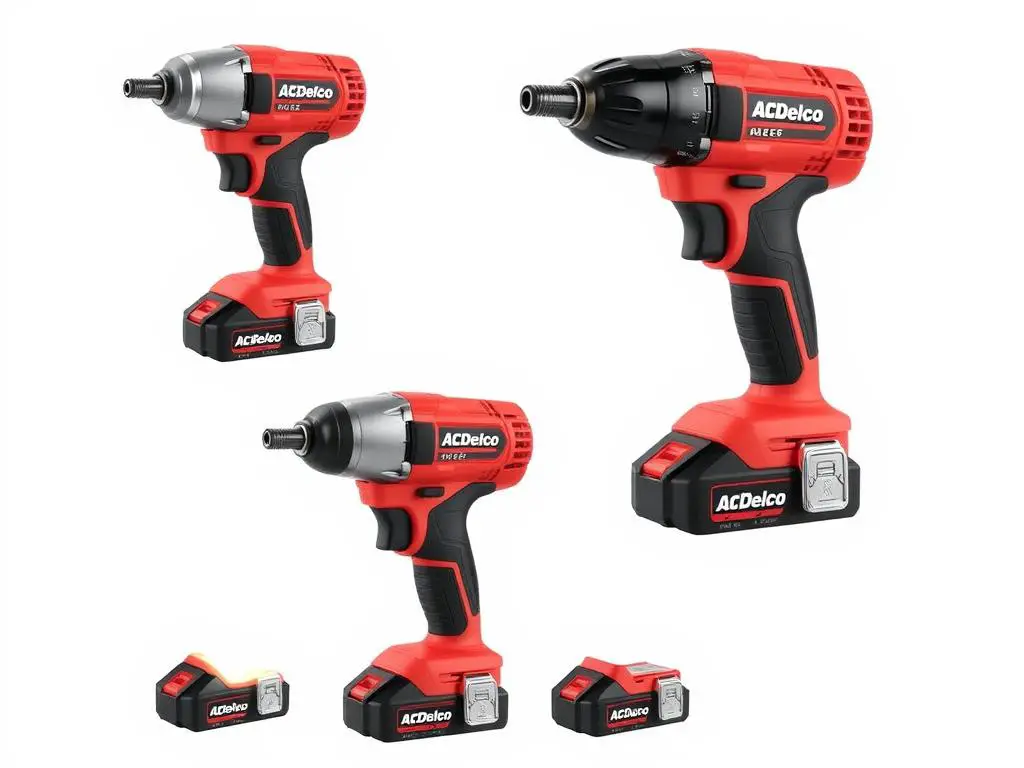
Best Compact: ACDelco G12 Series Cordless 12V
The ACDelco G12 is the perfect emergency tool to keep in your vehicle. This ultra-compact 3/8-inch impact wrench delivers 100 ft-lbs of torque—sufficient for most passenger car lug nuts—in a package small enough to store in your glove compartment.
- Drive Size: 3/8-inch
- Max Torque: 100 ft-lbs
- Weight: 2.1 lbs (with battery)
- Battery: 12V (included)
- Features: LED work light, variable speed trigger, includes battery and charger
How to Use an Impact Wrench Without Damaging Threads
While impact wrenches are powerful tools for lug nuts, improper use can lead to damaged threads, broken studs, or overtightened fasteners. Follow these guidelines to ensure safe and effective operation.
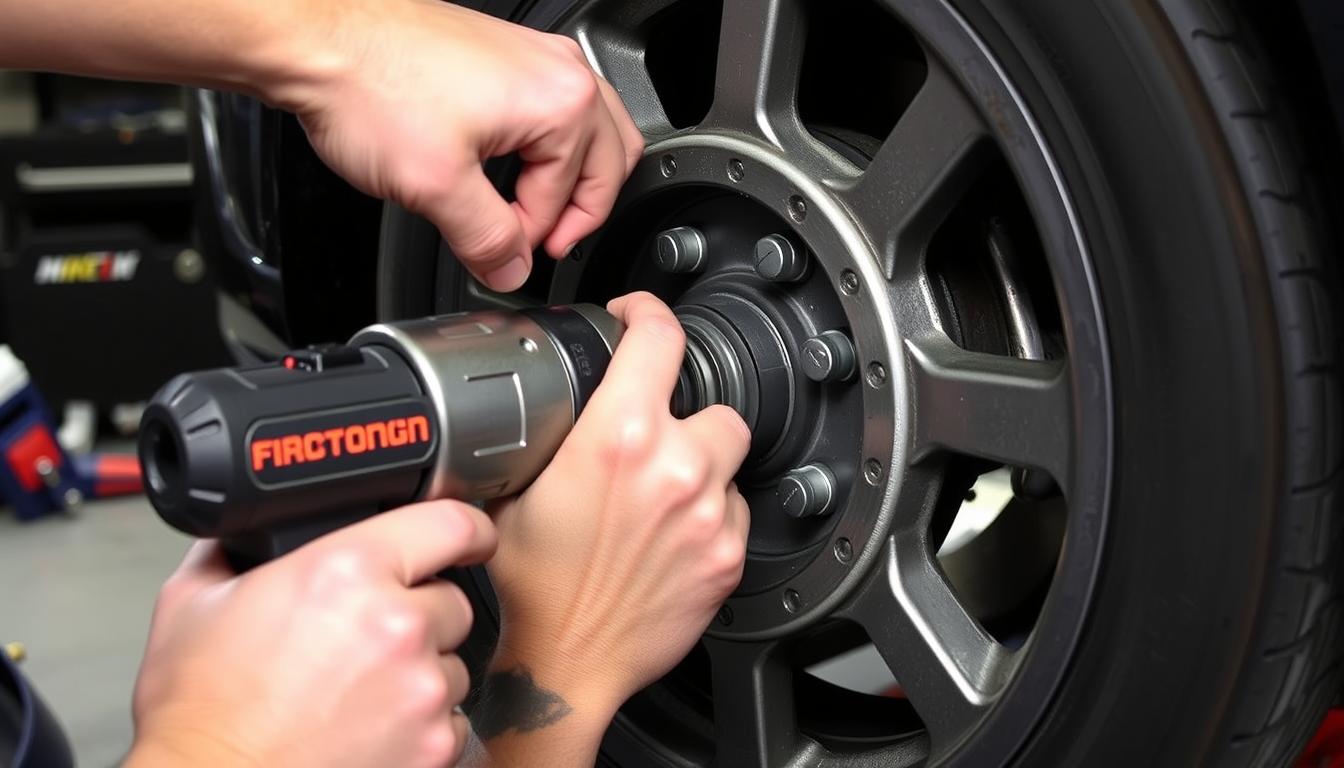
Step-by-Step Guide for Lug Nut Removal
- Select the correct socket size – Using an impact-rated socket that precisely matches your lug nut size is critical. Standard chrome sockets can shatter under impact force.
- Apply penetrating oil – For stubborn or rusted lug nuts, apply penetrating oil and allow 10-15 minutes for it to work before attempting removal.
- Position the socket properly – Ensure the socket is fully seated on the lug nut to prevent rounding off the corners.
- Use the correct settings – Start with a lower torque setting if available, especially on older vehicles with potentially weakened studs.
- Apply steady pressure – Hold the impact wrench firmly and maintain straight alignment with the lug nut to prevent side loading.
- Use short bursts – Rather than holding the trigger continuously, use short pulses, especially when the nut begins to break free.
- Hand-tighten for reinstallation – When reinstalling wheels, start threads by hand to prevent cross-threading.
- Finish with a torque wrench – Always complete final tightening with a calibrated torque wrench to manufacturer specifications.
“The impact wrench is designed to break loose fasteners, not necessarily to tighten them to specification. Always finish with a torque wrench to ensure proper wheel installation.”
Recommended Accessories for Lug Nut Work
Torque Sticks
Torque limiting extensions that help prevent overtightening when using impact wrenches. These color-coded extensions flex at specific torque values, providing a simple way to approximate proper torque during initial tightening.
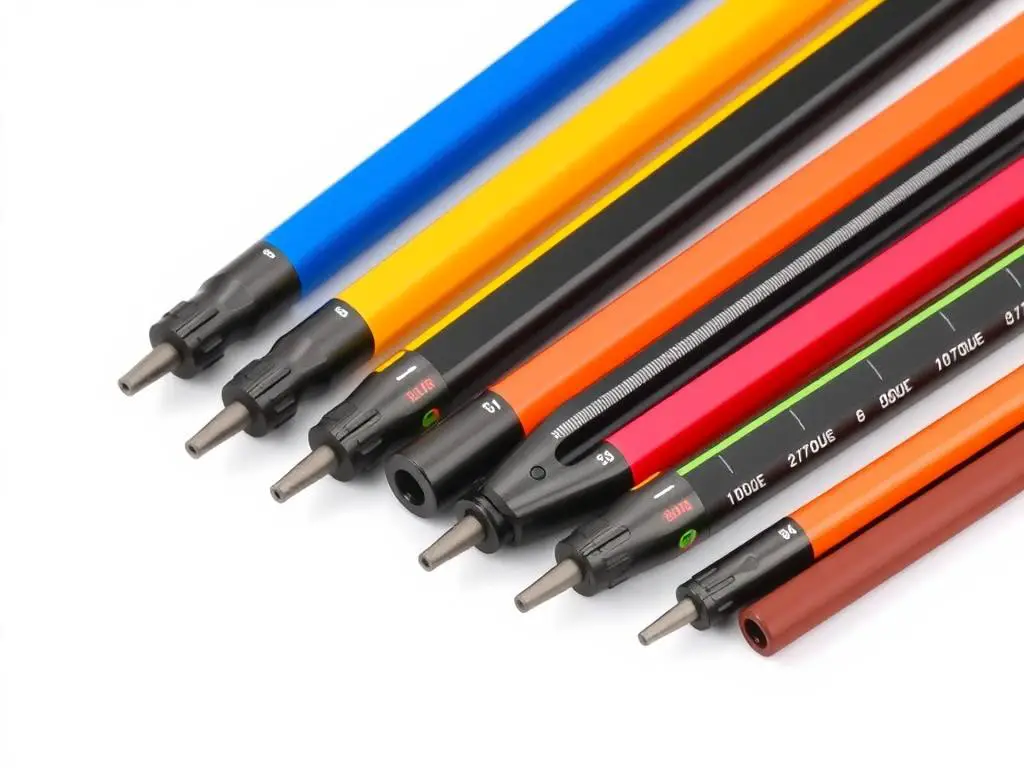
Thin-Wall Impact Sockets
Specially designed for wheel work, these impact-rated sockets have a thin wall and protective sleeve to prevent damage to alloy wheels while still providing the strength needed for impact use.
Warning: Never use standard chrome sockets with an impact wrench. They can shatter under impact force, causing potential injury. Always use sockets specifically rated for impact use.
Common Mistakes When Using Impact Wrenches on Lug Nuts
Even experienced mechanics can make errors when using impact wrenches. Understanding these common pitfalls can help protect your vehicle’s components and ensure safe wheel installation.
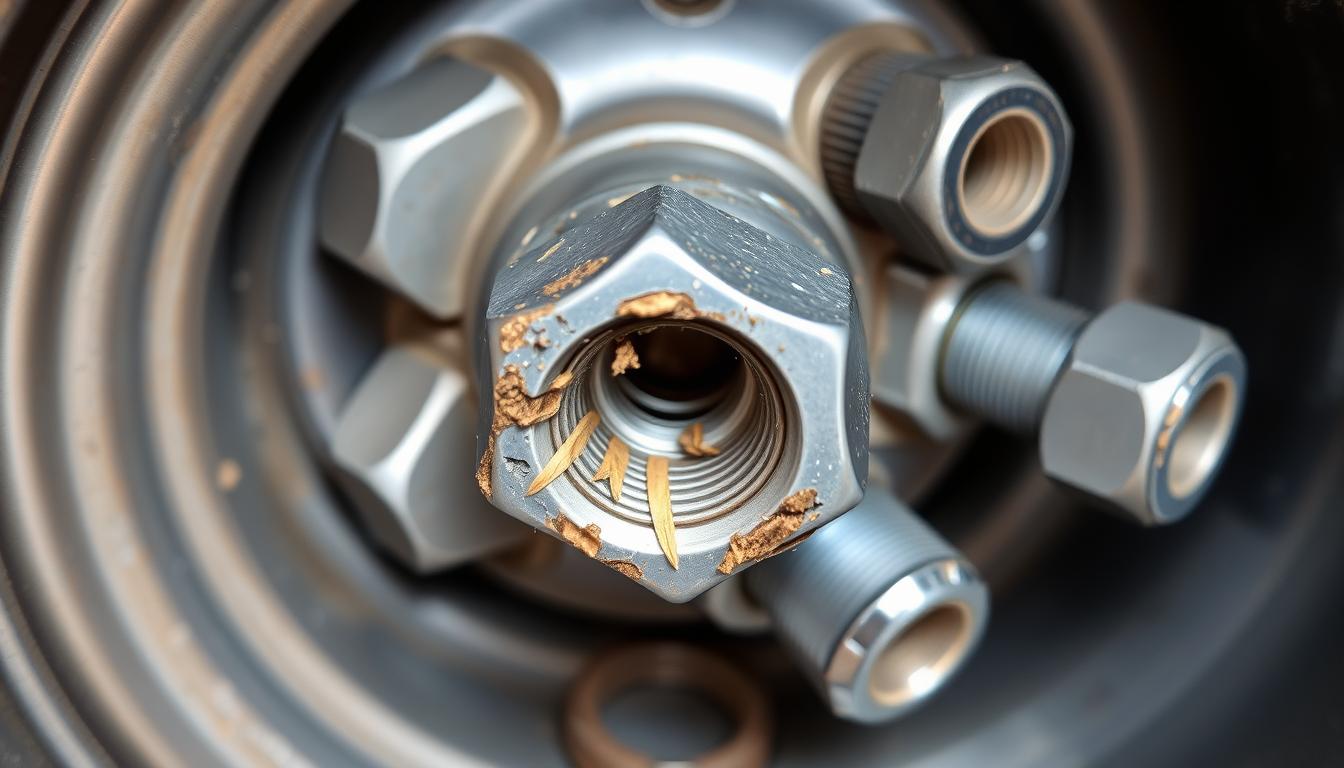
Overtightening Lug Nuts
Perhaps the most common mistake is overtightening lug nuts with an impact wrench. This can lead to stretched or broken studs, warped rotors, and even wheel damage.
Proper Torque Values: Most passenger cars require between 80-100 ft-lbs of torque for lug nuts. SUVs and light trucks typically need 100-150 ft-lbs. Always consult your vehicle’s manual for exact specifications.
Using the Wrong Socket Type
Standard chrome sockets aren’t designed to withstand the hammering action of impact wrenches. They can crack or shatter during use, potentially causing injury.
Signs of Lug Nut Damage:
- Rounded corners on hex nuts
- Visible cracks in the lug nut
- Stretched or damaged wheel studs
- Difficulty removing lug nuts even with proper tools
- Visible warping of the brake rotor
Prevention Tips:
- Use torque sticks as a preliminary measure
- Always finish with a calibrated torque wrench
- Apply anti-seize compound sparingly on threads (if recommended by manufacturer)
- Clean threads before reinstallation
- Follow a star pattern when tightening lug nuts
Cross-Threading During Installation
Impact wrenches can easily cross-thread lug nuts if they’re not started properly by hand. This damages both the nut and the wheel stud, often requiring complete replacement.
“Always start lug nuts by hand for the first few turns. This ensures proper thread engagement and prevents the costly damage that can occur from cross-threading with power tools.”
Neglecting Torque Specifications
Different vehicles have different torque requirements for lug nuts. Using a “one-size-fits-all” approach can lead to unsafe conditions. Always consult your vehicle’s manual for the correct specifications.
| Vehicle Type | Typical Torque Range (ft-lbs) | Recommended Socket Size |
| Compact Cars | 80-90 | 17mm, 19mm, or 3/4″ |
| Mid-Size Sedans | 90-100 | 19mm, 21mm, or 13/16″ |
| Full-Size Sedans | 100-120 | 19mm, 21mm, or 7/8″ |
| SUVs & Light Trucks | 120-150 | 21mm, 22mm, or 7/8″ |
| Heavy-Duty Trucks | 150-200+ | 22mm, 24mm, or 15/16″ |
Frequently Asked Questions About Impact Wrenches for Lug Nuts
Can an impact wrench overtighten lug nuts?
Yes, impact wrenches can easily overtighten lug nuts if used improperly. Most impact wrenches deliver significantly more torque than required for lug nuts, which is why torque sticks or a torque wrench should be used for final tightening to manufacturer specifications.
What size impact wrench do I need for lug nuts?
For most passenger vehicles, a 1/2-inch drive impact wrench with 200-300 ft-lbs of torque is sufficient. For larger SUVs and trucks, models with 300-500 ft-lbs are recommended. The drive size refers to the square anvil that accepts sockets, not the socket size that fits your lug nuts.
Is a cordless impact wrench powerful enough for lug nuts?
Modern cordless impact wrenches are more than powerful enough for most lug nuts. Mid-range 18V/20V models typically deliver 300-700 ft-lbs of torque, which exceeds the requirements for most passenger vehicle lug nuts (80-150 ft-lbs).
Can I use an impact driver instead of an impact wrench for lug nuts?
Impact drivers are not recommended for lug nuts. While they look similar, impact drivers are designed for screws and small bolts, typically using hex bits instead of square drive sockets. They generally don’t provide sufficient torque for stubborn lug nuts and lack the proper drive mechanism for this application.
How do I prevent damaging alloy wheels with an impact wrench?
Use thin-wall impact sockets specifically designed for wheel work, which have protective sleeves to prevent marring. Never overtighten lug nuts with an impact wrench, and always use a torque wrench for final tightening to prevent warping that can damage wheels.
Do I need special sockets for my impact wrench?
Yes, you must use impact-rated sockets with any impact wrench. These sockets are made from softer, more ductile steel that can withstand the hammering action of impact tools. Standard chrome sockets can shatter under impact force, creating a serious safety hazard.
Conclusion: Choosing the Right Impact Wrench for Your Needs
An impact wrench is an invaluable tool for anyone who regularly works on vehicles or faces the occasional tire change. The right impact wrench for lug nuts can transform a physically demanding task into a quick and effortless job while helping prevent damage to wheel components.
For most DIY automotive enthusiasts, a mid-range cordless 1/2-inch impact wrench like the DEWALT 20V MAX XR offers the ideal balance of power, portability, and value. Professional mechanics may prefer the consistent power of a pneumatic model like the Ingersoll Rand 2235TiMAX, while those seeking a compact emergency option might choose the ACDelco G12 Series.
Remember that while impact wrenches excel at breaking loose stubborn fasteners, proper torque application during reinstallation is critical for safety. Always follow up with a calibrated torque wrench to ensure lug nuts are tightened to manufacturer specifications.
Ready to Make Tire Changes Easier?
Our top recommendation for most users is the Milwaukee 2767-20 M18 FUEL High Torque Impact Wrench, offering professional-grade performance with the convenience of cordless operation.
